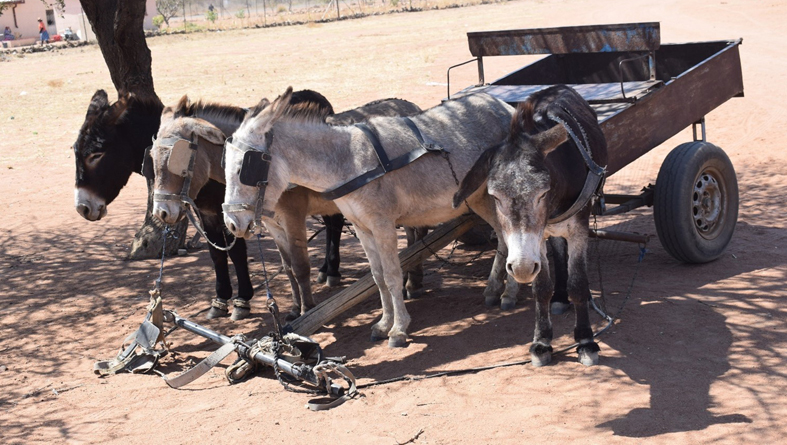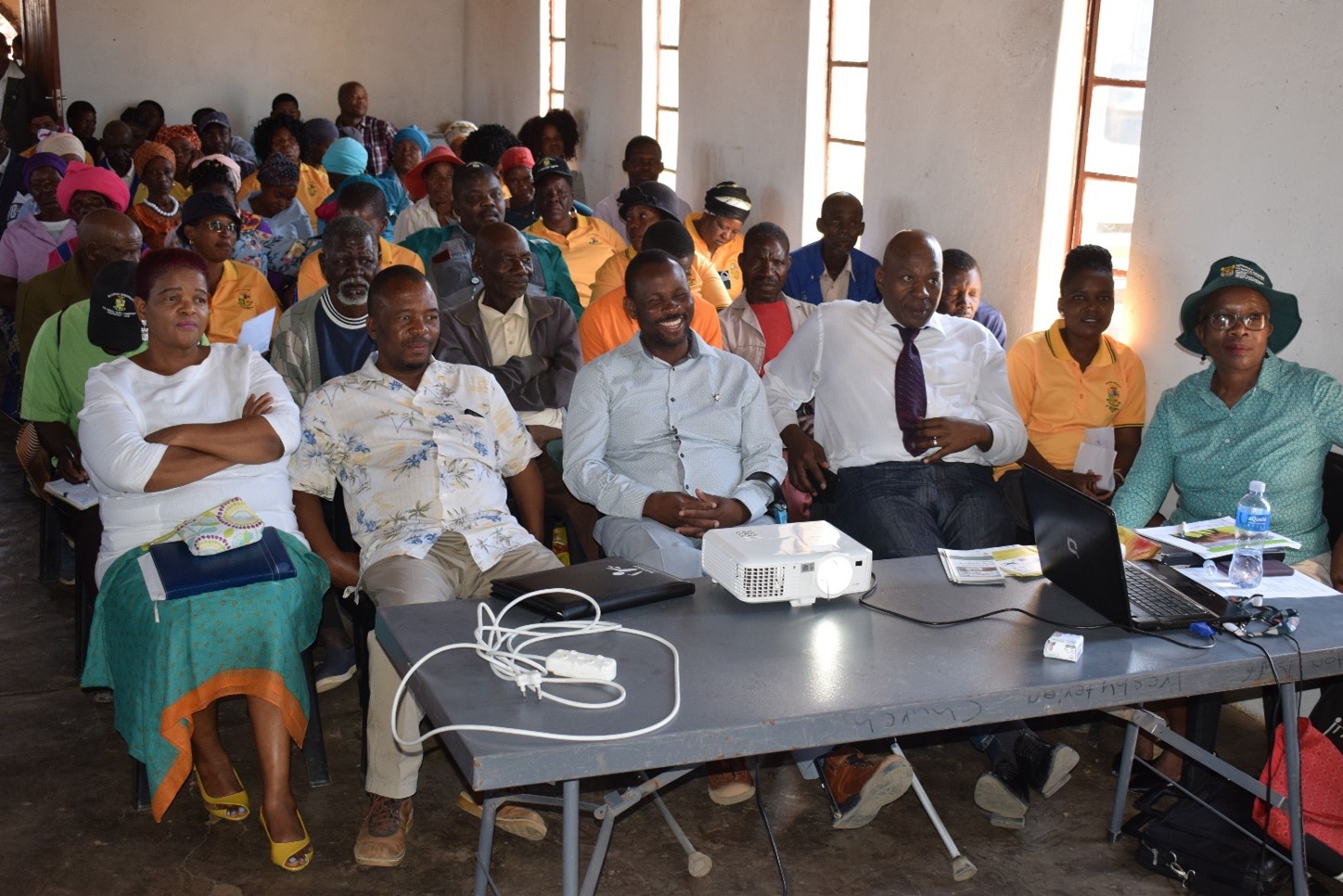By Matsobane Manaka

Mompati Kgomonyane Modimogale (above) from Anga Holdings (PTY) LTD addresses the farmers about the management of donkey as one of the critical areas for improvement to compete with other livestock industries
The 7th of May is an International Donkey Day, a week after celebration of International Workers’ Day on the 1st of May. Both days are celebrated annually as they relate to acknowledge the hardest workers.
Donkey is rated as one of the most workaholic animal on planet. This is despite some myths and misconceptions that donkey does not get sick, have no owners, overgraze and waste fodder among others that often overshadow the role donkey plays in contributing towards economic conditions especially in rural areas.
With ever increases of fuel prices and transportation, donkey remains a reliable, most efficient and sustainable mode of transport for different commodities in rural communities. Donkey pulls carts and wagons carrying water, woods, sands, fertilisers and harvested produce. Due to that, owners can generate income and help alleviating poverty in rural communities.

Donkeys are most workaholic animal on planets with the super ability to pull carts and wagon carrying varying commodities to improve rural livelihoods
Mompati Kgomonyane Modimogale from Anga Holdings (PTY) LTD in his presentations during Donkey information day held at Ga-Molele village, Blouberg said donkey milk and meat have lots of health benefits. “Donkey milk contains vitamin A, B1 and B2, vitamin C, E, sodium, phosphorus, potassium, immunoglobulin, magnesium and calcium. Donkey meat have a low-fat content and an appreciable protein content. Donkey skins are used to make gelatine for a product called ejiao – a product that has been used as traditional Chinese medicine for years.
“For cosmetics, donkey milk suits all skin types including sensitive skins. As a nourishing product, it is equally beneficial for dehydration skin. As for oily skin, donkey milk’s mineral rich yet low in fat, making it an excellent moisturiser. Its restructuring properties help to firm skin and reduce wrinkles, so it also works wonders on mature skin. It also helps regenerate skin dried out by the sun”.
The management of donkey begins from the production to abattoir, where meat and skin are produced as well as the associated by-products to dairy where milk and milk by-products are also produced including the animal feed. The whole value chain enabled job creation and food security.
Modimogale urged for recognition that donkey plays with regards to economic contribution and the establishment of a sustainable donkey industry that will compete with other livestock industries.



